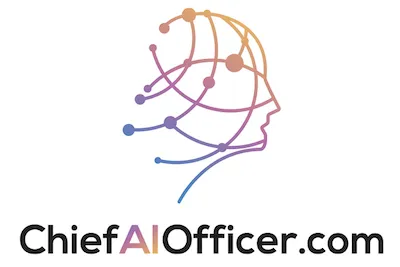Most insurance companies lose billions annually to sophisticated fraud schemes that traditional detection methods cannot identify until after fraudulent claims get paid. Zurich Insurance built an AI system that detects fraud in real-time with 98% accuracy, processes claims 58 times faster than human investigators, and prevents fraudulent payouts before they occur while improving legitimate customer experience.
The transformation is comprehensive. Zurich operates the most advanced fraud detection system in the insurance industry through AI that analyzes every claim automatically, identifies suspicious patterns instantly, and prevents fraud losses that destroy industry profitability while accelerating legitimate claims processing.
This represents complete insurance industry evolution that demonstrates how artificial intelligence can eliminate the reactive fraud management that enables billions in annual losses while creating competitive advantages through superior risk management and operational efficiency.
The Strategic Vision That Revolutionized Insurance Fraud Prevention
Zurich’s leadership made a decision that most insurance executives struggle to implement: they transformed their fraud detection approach from reactive investigation after suspicious claims get paid to proactive prevention that identifies potential fraud before any money leaves the company.
Instead of relying on post-payment fraud investigation that recovers only a fraction of fraudulent claims, they built AI systems that analyze every claim in real-time to identify suspicious patterns, document inconsistencies, and behavioral anomalies before claim processing begins.
This strategic transformation required fundamental changes to claims processing workflows, investigative procedures, and technology infrastructure. Traditional insurance fraud detection operates through manual review of flagged claims after initial processing. Zurich created AI capabilities that prevent fraudulent claims from advancing through processing systems.
The competitive implications are massive. While traditional insurers pay fraudulent claims and attempt recovery through lengthy investigation processes, Zurich prevents fraud losses entirely while maintaining processing speed that improves customer satisfaction and operational efficiency.
Real-Time AI Detection That Outperforms Human Investigation
Zurich’s real-time fraud detection demonstrates sophisticated pattern recognition that processes every claim automatically to identify suspicious anomalies, document inconsistencies, and behavioral patterns that indicate potential fraud with accuracy levels that exceed human investigation capabilities.
The AI analyzes multiple claims linked by address, unusual submission patterns, document authenticity indicators, and behavioral signals that suggest coordinated fraud attempts or individual claim manipulation before human investigators become involved.
This real-time analysis enables immediate fraud prevention rather than reactive investigation that occurs after fraudulent payments get processed, creating cost advantages through prevention rather than recovery efforts with uncertain success rates.
The system’s 98% accuracy rate in policy checking and fraud detection proves that AI can deliver superior performance compared to manual review processes while operating continuously without fatigue or attention lapses that affect human investigation quality.
Zurich Customer Active Management (ZCAM) That Learns From Fraudster Tactics
Zurich’s in-house AI platform demonstrates sophisticated machine learning capabilities that continuously evolve to detect new fraud patterns and adapt to changing fraudster tactics through systematic analysis of fraud attempts and successful prevention outcomes.
ZCAM processes historical fraud cases, successful detection patterns, and emerging threat indicators to improve detection accuracy while reducing false positives that unnecessarily delay legitimate claims and create customer satisfaction issues.
The continuous learning capability ensures that fraud detection remains effective against evolving fraud schemes while adapting to new fraud methodologies that traditional rule-based detection systems cannot identify or prevent effectively.
This adaptive intelligence creates sustainable competitive advantages because the AI becomes more effective over time while fraudsters find it increasingly difficult to develop successful schemes against continuously improving detection capabilities.
Natural Language Processing That Identifies Fraudulent Communication Patterns
Zurich’s NLP capabilities demonstrate advanced linguistic analysis that identifies specific word patterns, communication styles, and narrative inconsistencies commonly present in fraudulent property and commercial claims documentation.
The AI analyzes claim descriptions, supporting documentation, and communication patterns to identify linguistic indicators that suggest fraudulent intent or coordinated fraud attempts involving multiple claims with similar language patterns or narrative structures.
This linguistic analysis provides additional fraud detection layers that complement image analysis, document verification, and behavioral pattern recognition to create comprehensive fraud prevention that addresses multiple fraud methodologies simultaneously.
The NLP integration enables detection of sophisticated fraud schemes that rely on carefully crafted documentation and communication strategies designed to appear legitimate while hiding fraudulent intent from traditional investigation approaches.
AI Image and Video Analysis That Detects Visual Fraud
Zurich’s visual analysis capabilities demonstrate sophisticated AI that differentiates types of vehicle damage, verifies photo authenticity, and detects manipulated images or deepfake content submitted with fraudulent claims.
The AI processes image metadata, damage patterns, and visual consistency indicators to identify manipulated photos, staged damage scenarios, or recycled images from previous claims that fraudsters attempt to use for multiple fraudulent submissions.
This visual intelligence prevents payment on claims supported by falsified evidence while providing investigators with objective analysis that supports fraud determination and legal proceedings against identified fraudsters.
The automated image analysis capability processes visual evidence faster and more consistently than human review while identifying manipulation techniques and inconsistencies that human investigators might overlook during manual examination.
Human-AI Collaboration That Maximizes Investigation Effectiveness
Zurich’s Special Investigation Unit demonstrates sophisticated integration between AI detection capabilities and experienced human investigators that combines artificial intelligence pattern recognition with human intuition and investigative expertise.
The AI provides investigators with comprehensive analysis, suspicious pattern identification, and evidence flagging that enables human experts to focus on complex investigation tasks that require creative thinking, interview skills, and legal knowledge that AI cannot replicate.
This collaboration model ensures that AI enhances rather than replaces human investigative capabilities while enabling investigators to handle more cases efficiently through AI support that eliminates routine analysis and evidence processing tasks.
The combination creates investigation outcomes that exceed either AI or human capabilities alone while maintaining the human judgment and expertise required for complex fraud cases and legal proceedings.
Claims Processing Acceleration That Improves Customer Experience
Zurich’s AI automation creates dramatic improvements in legitimate claims processing speed that enhances customer satisfaction while freeing human resources for complex cases that require specialized attention and investigation expertise.
The AI triages claims automatically with over 98% accuracy in routine processing tasks, enabling immediate approval for legitimate claims while flagging suspicious cases for human investigation without delaying straightforward claim resolution.
This processing acceleration creates competitive advantages through superior customer service while reducing operational costs and enabling resource allocation optimization that improves both fraud prevention and customer satisfaction simultaneously.
The 58-time reduction in claim review time for routine cases proves that AI can deliver superior efficiency without compromising fraud detection accuracy or customer service quality that differentiates successful insurance providers.
Catastrophe Fraud Detection That Protects Against Opportunistic Schemes
Zurich’s AI capabilities include specialized detection for catastrophe-related fraud where criminals attempt to exploit natural disasters, accidents, or other large-scale events to submit fraudulent claims that traditional investigation approaches struggle to identify during high-volume claim periods.
The AI analyzes claim patterns during catastrophe events to identify suspicious submissions, duplicate claims, and opportunistic fraud attempts that exploit processing pressures and investigation resource limitations during crisis periods.
This catastrophe-specific fraud detection prevents significant losses that typically occur during natural disasters when claim volumes overwhelm traditional investigation capabilities and fraudsters exploit processing delays and resource constraints.
The systematic approach to catastrophe fraud prevention creates financial protection during precisely the periods when insurance companies face the highest claim volumes and greatest potential for fraud-related losses.
Document Authenticity Verification That Prevents Sophisticated Forgery
Zurich’s AI document analysis capabilities provide comprehensive verification of claim documentation authenticity through metadata analysis, consistency checking, and forgery detection that identifies sophisticated document manipulation attempts.
The AI processes document characteristics, creation metadata, and consistency indicators to identify forged, altered, or fabricated documentation while maintaining processing speed that supports efficient claims handling for legitimate submissions.
This document verification prevents fraud schemes that rely on falsified supporting evidence while providing objective analysis that supports legal proceedings and fraud prosecution efforts against identified perpetrators.
The automated document analysis capability enables systematic verification that human review cannot achieve consistently across large claim volumes while identifying sophisticated forgery techniques that traditional verification approaches might miss.
Trend Analysis That Anticipates Emerging Fraud Schemes
Zurich’s AI trend analysis provides predictive intelligence about emerging fraud patterns, new fraud methodologies, and evolving criminal tactics that enable proactive fraud prevention rather than reactive response to established fraud schemes.
The AI analyzes fraud attempt patterns, successful detection outcomes, and industry fraud intelligence to identify emerging threats and develop prevention strategies before new fraud schemes become widespread across the insurance industry.
This predictive capability enables Zurich to develop countermeasures for emerging fraud threats while sharing intelligence with industry partners to improve overall fraud prevention effectiveness across insurance markets.
The trend analysis creates strategic advantages through early identification of fraud evolution that enables prevention strategy development before competitors recognize emerging threats or develop effective countermeasures.
False Positive Reduction That Maintains Customer Trust
Zurich’s AI fraud detection includes sophisticated false positive reduction that minimizes unnecessary delays for legitimate claims while maintaining high detection accuracy for actual fraud attempts that require investigation and prevention.
The AI balances fraud detection sensitivity with customer experience considerations to ensure that legitimate customers receive prompt claim processing while suspicious cases receive appropriate investigation attention without creating unnecessary frustration.
This balance maintains customer trust and satisfaction while protecting against fraud losses, creating sustainable fraud prevention that supports business growth rather than creating customer service problems that damage competitive positioning.
The reduced false positive rate proves that AI can deliver superior fraud detection without compromising customer experience or creating operational inefficiencies that offset fraud prevention benefits.
Global Implementation That Scales Fraud Prevention
Zurich’s AI fraud detection operates across multiple countries and regulatory environments, demonstrating sophisticated adaptation to local fraud patterns, regulatory requirements, and market conditions while maintaining consistent fraud prevention effectiveness.
The global implementation provides comprehensive fraud protection across Zurich’s international operations while enabling knowledge sharing and best practice development that improves fraud prevention effectiveness across all markets.
This international scale creates competitive advantages through comprehensive fraud intelligence and prevention capabilities that exceed what local or regional competitors can achieve through limited geographic scope and fraud detection experience.
The global perspective enables identification of international fraud schemes and coordinated criminal activities that single-market fraud detection approaches cannot identify or prevent effectively.
Risk Management Integration That Protects Profitability
Zurich’s AI fraud detection integrates with comprehensive risk management strategies that protect profitability through fraud prevention while supporting aggressive market growth and competitive pricing that depend on superior loss control capabilities.
The fraud prevention capabilities enable more competitive pricing and broader market coverage because AI detection reduces the fraud losses that typically constrain insurance profitability and market expansion strategies.
This risk management integration creates sustainable competitive advantages through superior loss control that enables market strategies and pricing approaches that competitors with traditional fraud detection cannot pursue effectively.
The integrated approach to fraud prevention and risk management demonstrates how AI can enable business strategy advantages rather than simply providing operational efficiency improvements.
Competitive Positioning Through AI-Enhanced Loss Control
Zurich’s AI fraud detection establishes sustainable competitive advantages that traditional insurance companies struggle to replicate without fundamental changes to claims processing, investigation procedures, and technology infrastructure.
The combination of real-time detection, automated processing, predictive analysis, and human-AI collaboration creates comprehensive fraud prevention that compounds over time as AI capabilities continue improving and fraud intelligence expands.
Traditional competitors face increasingly difficult strategic choices: invest heavily in AI transformation initiatives that require significant technology infrastructure and process changes, or accept competitive disadvantages in fraud losses, operational efficiency, and customer service quality.
Implementation Framework for Insurance Executives
Zurich’s transformation provides proven strategies for executives considering AI adoption in fraud detection and claims management. The key principles emphasize comprehensive fraud prevention rather than incremental investigation improvements.
They started with clear competitive objectives: eliminate fraud losses before payment, accelerate legitimate claims processing, improve customer satisfaction, and establish predictive fraud intelligence that creates sustainable competitive advantages. Every AI capability development served these strategic goals.
The implementation prioritized real-time prevention over reactive investigation while ensuring that AI systems enhance rather than replace human expertise for complex cases requiring investigative judgment and legal knowledge.
Most importantly, they measured success through fraud loss reduction, processing speed improvement, customer satisfaction enhancement, and competitive positioning rather than technology adoption metrics or AI capability demonstrations alone.
The companies that understand these strategic principles will establish insurance leadership through AI-enhanced fraud prevention and claims management that create sustainable competitive advantages. The ones that focus on traditional investigation approaches will find themselves competing against organizations that operate with fraud prevention and operational efficiency that conventional claims management cannot match.




